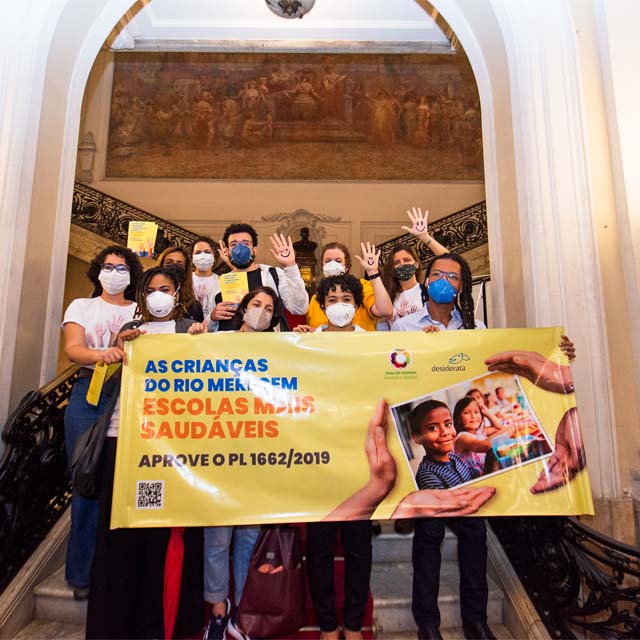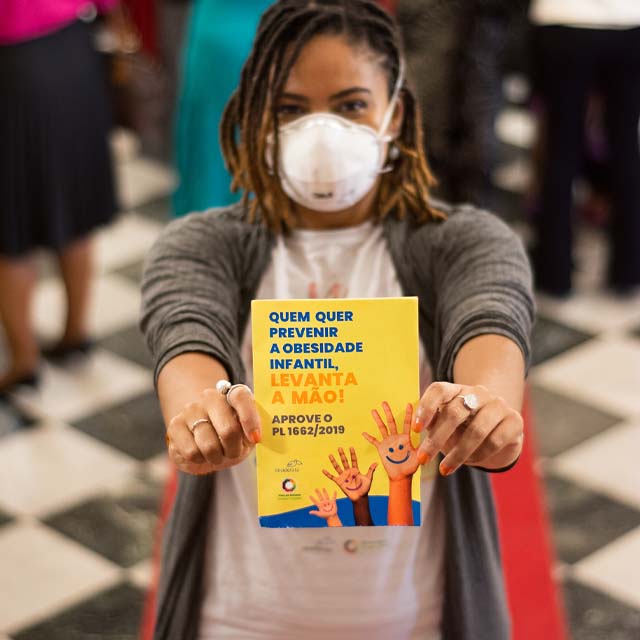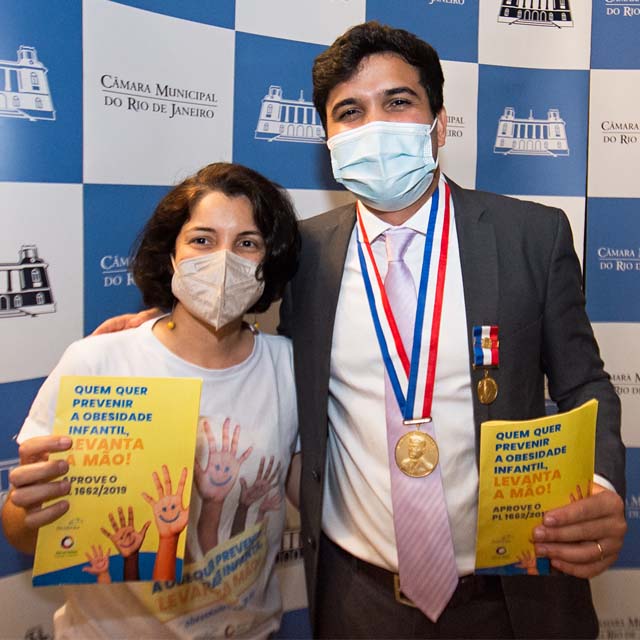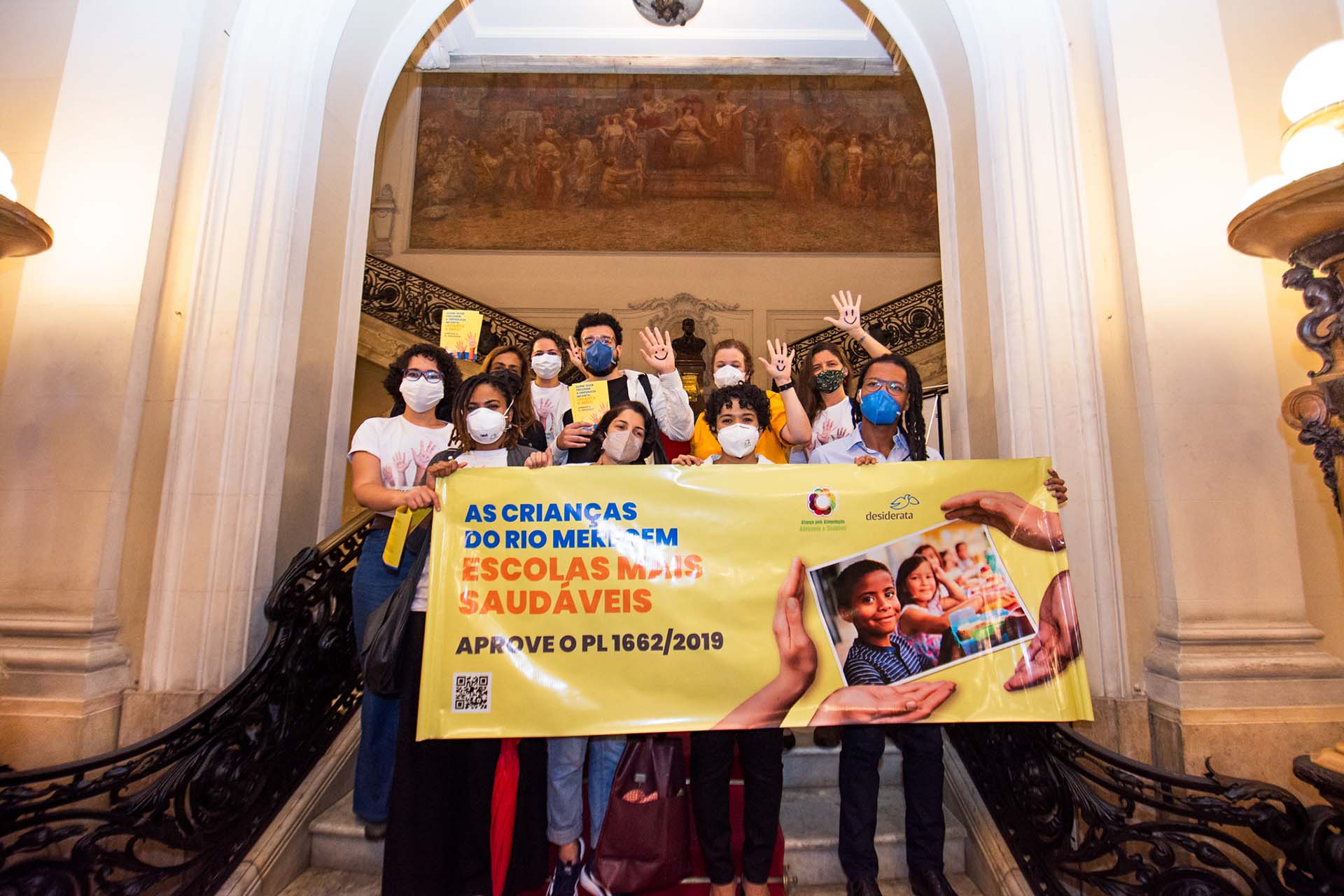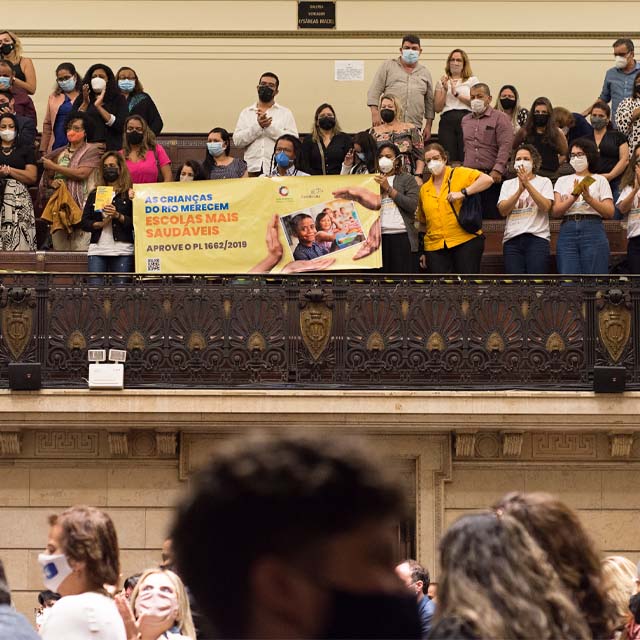
Childhood Obesity
Childhood obesity is a multifactorial condition that has become a public health problem worldwide. In 2020, 158 million children older than 5 years were overweight, according to the World Obesity Federation. In Brazil, it has been estimated that approximately 30% of the children and adolescents treated at SUS-affiliated primary healthcare centers are overweight.
Obesity is a risk factor for diabetes and cardiac and respiratory diseases in childhood and adulthood, affecting the quality of life and the full development of children and adolescents and overwhelming the health system. The need to reduce obesity rates has been a major challenge in view of the COVID-19 pandemic, which contributed to a sedentary lifestyle, with higher screen use by children and adolescents, and to an increase in the consumption of ultraprocessed foods, which have become more accessible to most of the economically underprivileged Brazilian families.
Our projects are targeted at the prevention and treatment of childhood and adolescent obesity and at the promotion of appropriate environment and eating habits, with the aim of safeguarding the right to healthier eating habits and lifestyle.
Strategy
Desiderata carries out integrated actions to raise the awareness of public managers and to influence public policies for the prevention and treatment of childhood obesity, such as knowledge production and dissemination, data monitoring, mobilization campaigns, and advocacy actions in the legislative and executive branches.
Results
in Children and Adolescents, fully in virtual format. The Panorama is a dynamic and user-friendly online tool that uses data from the Brazilian National Food and Nutrition Surveillance System (SISVAN), under the auspices of the Brazilian National Department of Health, and provides data on nutritional status and food intake of children and adolescents, categorized by sex, age, race/color, and place of residence.


